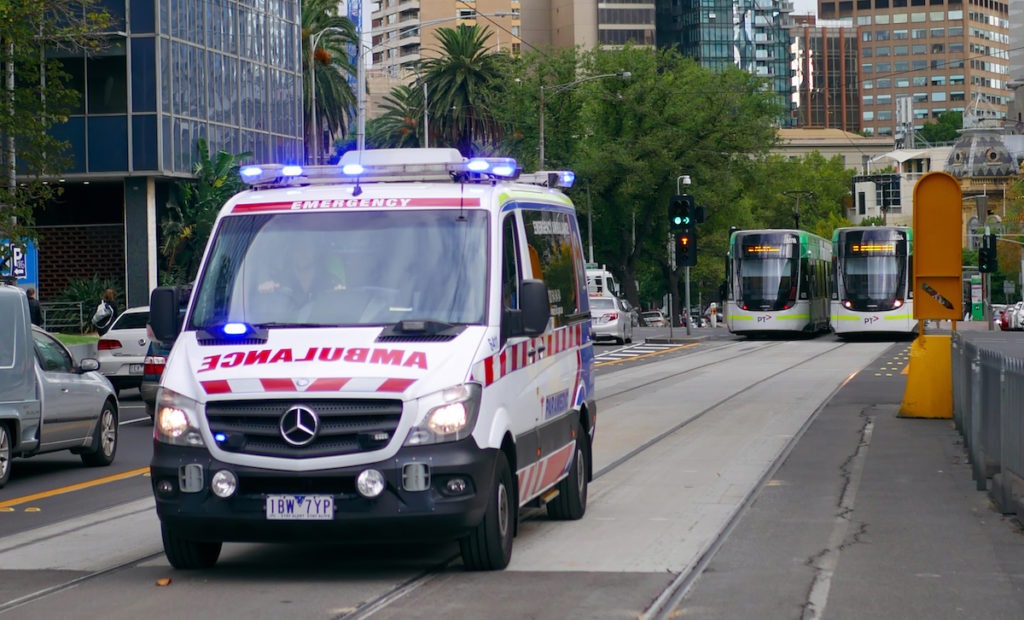The word ‘unprecedented’ has been getting thrown around a lot in 2020.
But five months since the World Health Organisation declared COVID-19 a pandemic, there is a lot going on now that is no longer unprecedented.
And ‘unprecedented’ should never be used to cover up the fact things have been ‘unplanned’.
This is especially true in the Australian aged care sector.
We’ve seen enough data internationally on COVID-19 to know the devastating consequences of what happens when the virus enters aged care facilities.
We have experienced our own devastating examples in Sydney back in April and May, with the Newmarch House aged care facility and the Dorothy Henderson Lodge.
In a less ‘unprecedented’ year, what occurred in those facilities would be the kind of events that would continue to get rolling media coverage as we desperately seek answers.
Months later, we’re seeing a similar, but already now much deadlier, crisis happening in multiple centres across Victoria, with the state now continuing to publish record daily death tolls — with the majority of deaths occurring in aged care.
So could we have better planned for this to save more lives? Could we have done more for older Australians?
These are some of the questions now being raised by the Aged Care Royal Commission, with Counsel Assisting Peter Rozen QC delivering some blistering opening remarks on Monday regarding just how underprepared this sector was, and how the current crisis is exposing long-existing flaws in the system.
Rozen said that while there was a “great deal” done to prepare the Australian health sector generally for the pandemic, “the evidence will reveal that neither the Commonwealth Department of Health nor the aged care regulator developed a COVID-19 plan specifically for the aged care sector.”
He noted a shortage of clinical skills in homes, as well as how deskilling of the work force has affected the response.
But critically, he shared how between June 19 and August 3 — as infections were rising in Victoria — no updated advice was offered and distributed regarding how the sector should “respond to the risk posed by aged care workers who may be COVID-19 positive yet asymptomatic, particularly those who work in multiple facilities.”
Masks were also not made compulsory for aged care workers until July 13. The same day that Victoria recorded 250 new infections.
“The regulator did not have an appropriate aged care sector COVID-19 response plan. Given that it was widely understood that recipients of aged care services were a high risk group, this seems surprising,” Rozen said.
He also said aged care residents deserve the same access to the hospital system as all Australians. “Many of the residents in aged care homes worked their entire lives to build the world class health system of which Australians are justifiably proud.
“They have the same right to access it in their hour of need as the rest of the community. To put it very directly, older people are no less deserving of care because they are old. Such an approach is ageist”.
Now, around two thirds of COVID-19 deaths in Australia are occuring in aged care facilities, at 68 per cent, it’s the highest rate in the world, according to Rozen.
But this isn’t just about the deaths of older Australian’s — a toll that some shamelessly seem to believe is not enough to shut down segments of the economy, off the idea that they’re merely “dying a few months earlier“.
This is about doing the best we can to continue to offer care and comfort during a desperate situation, and for those who are dying, to do everything possible to prevent the lonely deaths that are now occurring. Most of us would want the opportunity to hold the hands of our loved ones should we have warning that they are expected to die, or at least to see them in their final hours.
We’ve heard so many sickening stories now of family members desperately trying to get news on their loved ones. Of lonely, terrible deaths. Of bodies being left to linger in rooms. Of sons and daughters learning about the death of their parents, after previously being told they were ok.
But we must particularly pay attention to the stories of those current in these facilities.
Yesterday, 85 year old Merle Mitchell gave evidence during the Commission. She’s an activist and former head of the Australian Council of Social Service, and now a resident of the Glen Waverley nursing home in Melbourne, currently in lockdown. She shared just how lonely her days are.
She hasn’t left her room, other than for four physiotherapy sessions. She has a window, with a view of a brick wall. She says she’s being cared for, but that she’s sure most residents there would agree they would rather be dead than living.
She wakes up every morning disappointed that she didn’t die during the night.
This was not the first time Merle has given evidence to a Royal Aged Care Commission. She also did so in May 2019, discussing the desperate need to improve the ratio of staff to residents — along with her own experiences of wanting more challenging activities available and a lack of support she felt from the facility after losing her husband in 2016.
It’s tragic to consider how much Merle was and is yet to experience.
Watch Merle speaking in 2019 about being a community activist, and becoming an advocate for those in aged care.
If you or someone you know needs assistance, contact Kids Helpline on 1800 55 1800, Lifeline on 13 11 14, or Beyond Blue on 1300 22 4636.


